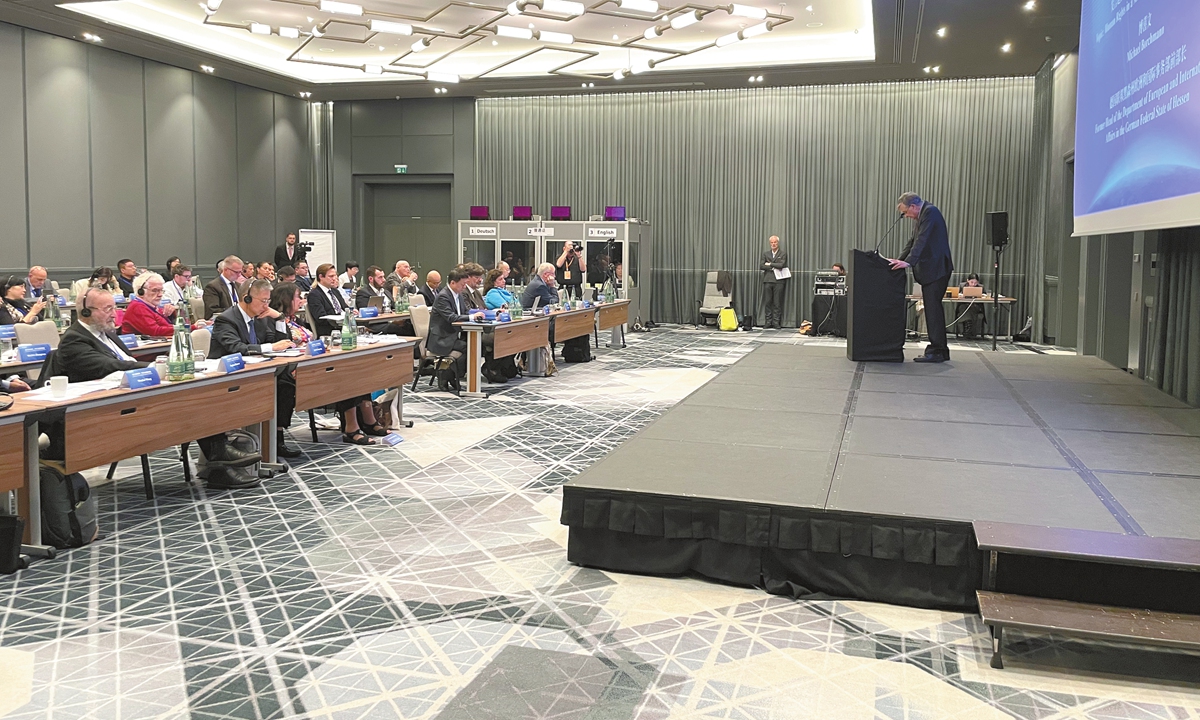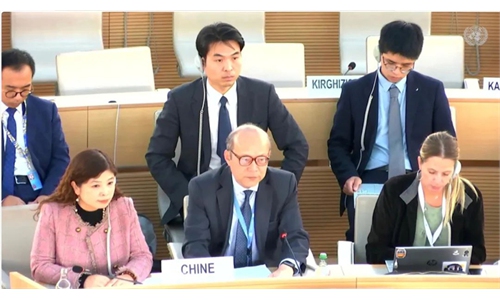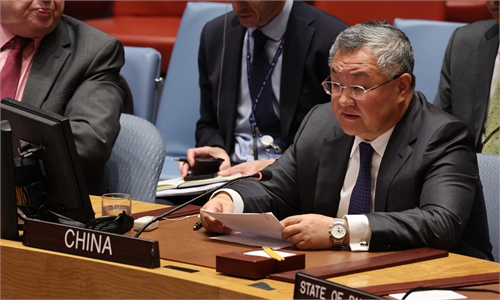International scholars gather in Berlin to discuss global governance of human rights
Platform for exchanges

Scholars gather in Berlin for the 2024 China-Europe Human Rights Seminar on October 22, 2024. Photo: Liu Xin/GT
Editor's Note:
On October 22, 2024, over 60 scholars from 16 countries gathered in Berlin for the 2024 China-Europe Human Rights Seminar, to discuss strategies for improving human rights protections and enhancing communication between China and European countries. The seminar, themed "The Protection of New and Emerging Rights: Views from China and Europe," was hosted by the China Society for Human Rights Studies and Central South University.
The Global Times reporters Liu Xin and Fan Lingzhi talked with some of scholars. Their perspectives reflected their thoughts and concerns regarding current global governance of human rights and the impact of geopolitics on these rights. Since its establishment in 2015, this seminar has served as a structured academic platform for exchanges and cooperation in the field of human rights, having held eight sessions to date.
Helga Zepp-LaRouche, founder and President of German-based think tank the Schiller Institute
It is probably impossible to speak about human rights without addressing the immediate danger to the very existence of the entire human species - war in Ukraine and war in the Middle East, which could be followed by a nuclear winter that would wipe out all life on our planet, the highest priority for humanity must be to rise above geopolitics and the idea that one nation or group of nations would have any legitimate interest that it was allowed to impose against any other nation or group of nations with all possible means.
Overcoming geopolitics lies in the concept of a community with a shared future for mankind. It involves the idea of a unified mankind. Geopolitics rejects this idea of one mankind, and assumes a zero-sum game in the relationship between nations or groups of nations, in which one wins and the other loses. But this by no means reflects the natural relationship between people of different nations and civilizations, as can be seen in how easily so-called "ordinary citizens" of different countries communicate with one another and live together in solidarity. Geopolitics, on the contrary, is based on the claim to power of oligarchical elites who intend to assert or maintain their empire or their privileges over other nationalities.
There is a significant difference in the strategic foreign policy perspective of China and Europe. While China offers a "win-win" cooperation for the common future of humanity, the West seems to always need an enemy against which its own supposed interests can be defined.
Mariana Tian, professor from the Institute of State and Law, Bulgarian Academy of Sciences
China, as one of the two largest economies in the world, one of the two most populous countries and a leader in the dynamics of comprehensive development, is increasingly involved in international processes. The issue of human rights has been an instrument of Western pressure on China, and also has been used as a pretext for foreign policy decisions, such as sanctions.
The relevant discourse on human rights of China not only defended the right to its own development model, but also highlighted the shortcomings of Western systems. This practice corresponds to the fundamental differences in the understanding of human rights in China and Europe, which are shown in China's Constitution, the Charter of the European Union on Human Rights, and the European Convention for the Protection of Human Rights and Fundamental Freedoms.
Based on the above documents, the differences between Chinese and European perceptions of fundamental human rights can be identified. This is the key to understanding the differences and approaches underlying the confrontation between China and the West.
Uwe Behrens, German Economist, International Logistic Expert
During my activities as a logistics manager in China and India, I was able to see poverty and the efforts to overcome it. While in India it progressed only very hesitantly or even stagnated, a process of overcoming it took place in China as a whole.
During a private road trip from Beijing to and through Guizhou within three months, I was able to witness the success firsthand.
Starting with construction of an infrastructure covering the whole of China: rail and road networks, electricity, and communication infrastructure. The basis was laid. The systematic recording of the causes and the development of measures was the second step in order to finally implement the measures in a third phase. At present, the focus is on security, so that individual people or entire villages will not fall back into poverty. A life for all people in the society with secure food, clothing and housing, medical and social security is the most important human right. In the interest of this human right, the rights of the group take precedence over individual rights.
The "Global North" can and should learn from China's experience how poverty in the "Global South" can be overcome, how people can be guaranteed a life worth living in their homeland, and how economic migration can be addressed.


